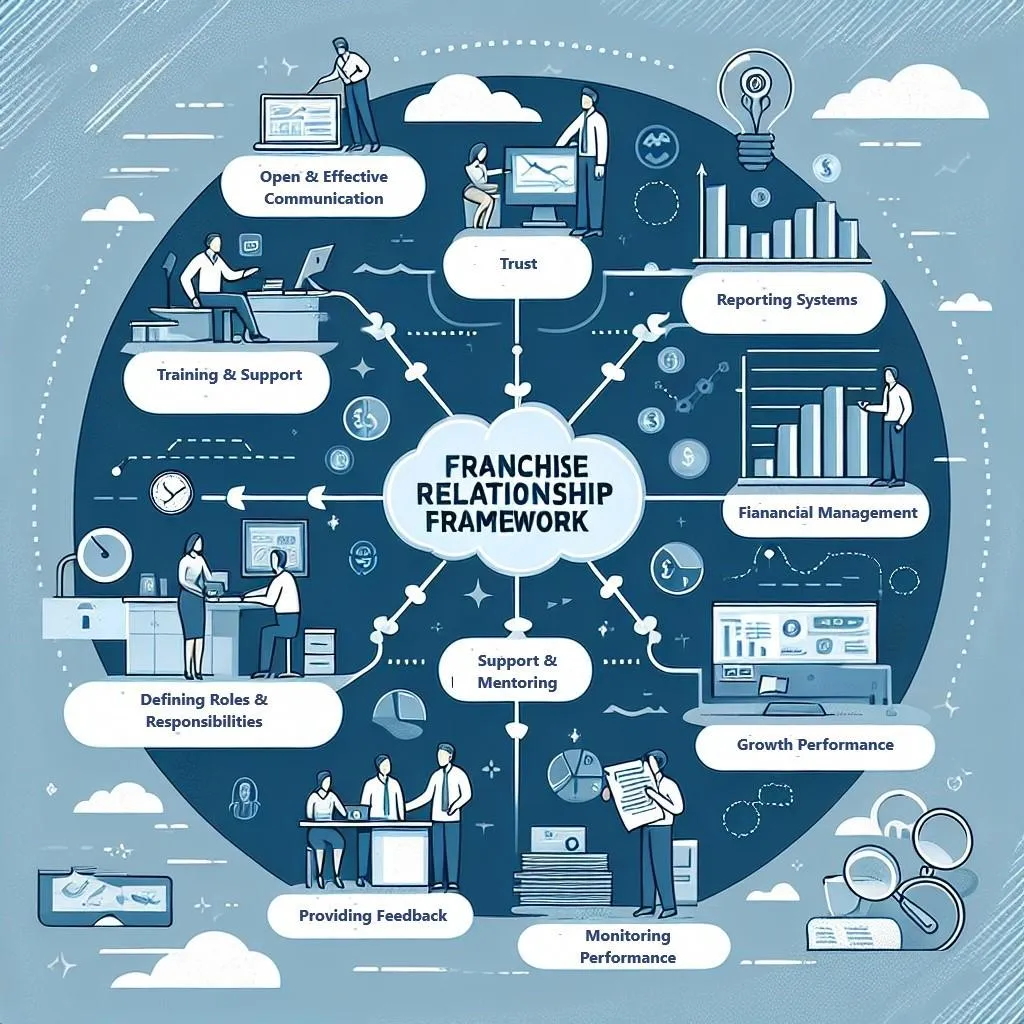
Building a Franchise Relationship Framework
The Importance of a Franchise Relationship Framework
Expanding a business through franchising presents both tremendous opportunities and significant challenges. The franchise relationship framework serves as the bedrock for ensuring smooth business operations and long-term success. It underpins the growth strategy by providing a structured approach to managing relationships between franchisors and franchisees.

A well-defined framework offers myriad benefits, such as enhanced franchisee satisfaction and improved operational consistency. A strong relationship framework can also help in mitigating potential risks by setting clear expectations and providing a robust support system.
Top companies exemplify how effective frameworks contribute to success. For instance, McDonald's and Subway have sophisticated franchise relationship frameworks that foster strong bonds with franchisees, driving mutual growth and profitability.
Need Help? Use International Quest Franchising, LLC
IQ Franchising helps businesses grow and expand through franchising by working closely with clients to build strong, successful franchise systems. We start by understanding your business, then develop a strategic plan that addresses opportunities and maximizes profits. Our expertise in project management and operational efficiency, like Lean & Six Sigma, ensures your franchise system is both effective and sustainable. With our support, your business can thrive, and franchisees can make a positive impact in their communities. Let us help you achieve success and reach your franchising goals. To learn more, Visit. (916) 774-7142
Key Components of an Effective Franchise Relationship Framework
A successful franchise relationship framework hinges on several key elements:
Clear communication channels between franchisors and franchisees are essential, ensuring that both parties are aligned with the business goals and operational standards.
Comprehensive training programs support franchisees in understanding and implementing best practices.
Transparent financial management and reporting systems foster trust by providing clarity on financial performance and obligations.
Performance monitoring and feedback mechanisms enable continuous improvement, while well-defined roles and responsibilities clarify expectations and reduce disputes.
Establishing Open and Effective Communication Channels
Regular and transparent communication forms the backbone of any successful relationship. In franchising, it’s crucial for maintaining alignment and addressing concerns promptly. Technologies like Customer Relationship Management (CRM) systems and franchisee portals can facilitate seamless communication.
Franchisors should hold regular meetings and conferences to discuss updates and strategies. Encouraging franchisees to share feedback and suggestions promotes a culture of collaboration and continuous improvement.
Training and Support for Franchisees
An initial training program is pivotal in aligning franchisees with brand standards and operational protocols. Continued training opportunities ensure franchisees stay updated with new practices and industry trends.
Access to resources and support networks, such as online repositories of training materials, is crucial. Additionally, mentorship programs can play a significant role in franchisee development, helping new franchisees navigate challenges and achieve success.
Financial Management and Reporting Systems
Establishing transparent financial practices builds trust and accountability. Franchisees should receive training on budgeting, forecasting, and financial management to ensure they handle their finances effectively.
Software tools can assist in accurate and timely financial reporting, while regular financial reviews and audits can catch issues early and keep the business on track.
Monitoring Performance and Providing Feedback
Setting clear performance metrics and Key Performance Indicators (KPIs) is essential for tracking success. Regular performance reviews help in identifying areas of improvement and ensuring compliance with the brand standards.
Constructive feedback coupled with action plans can guide franchisees towards improvement. Recognizing and rewarding high-performing franchisees also boosts morale and incentivizes excellence.
Defining Roles and Responsibilities
Clearly outlining the responsibilities of both the franchisor and franchisee is necessary for minimizing conflicts. A detailed franchise agreement should document these roles to avoid ambiguity.
Ensuring all parties understand and agree to their commitments can prevent misunderstandings. Regularly reviewing and updating roles as the franchise evolves keeps everyone aligned and accountable.
Potential Pitfalls and How to Avoid Them
Common mistakes in establishing franchise relationships often stem from unclear communication and misaligned expectations. Recognizing early warning signs, such as declining performance and franchisee discontent, can prevent a downward spiral.
Effective conflict resolution strategies, such as mediation and open dialogue, can address issues promptly. Best practices, like continuous training and regular feedback, help maintain strong relationships over time, ensuring sustained success for both parties.
International Quest Franchising, LLC Business Address: 3017 Douglas Blvd. Ste. 300 City: Roseville State: CA Zip: 95661 Phone: (916) 774-7142

